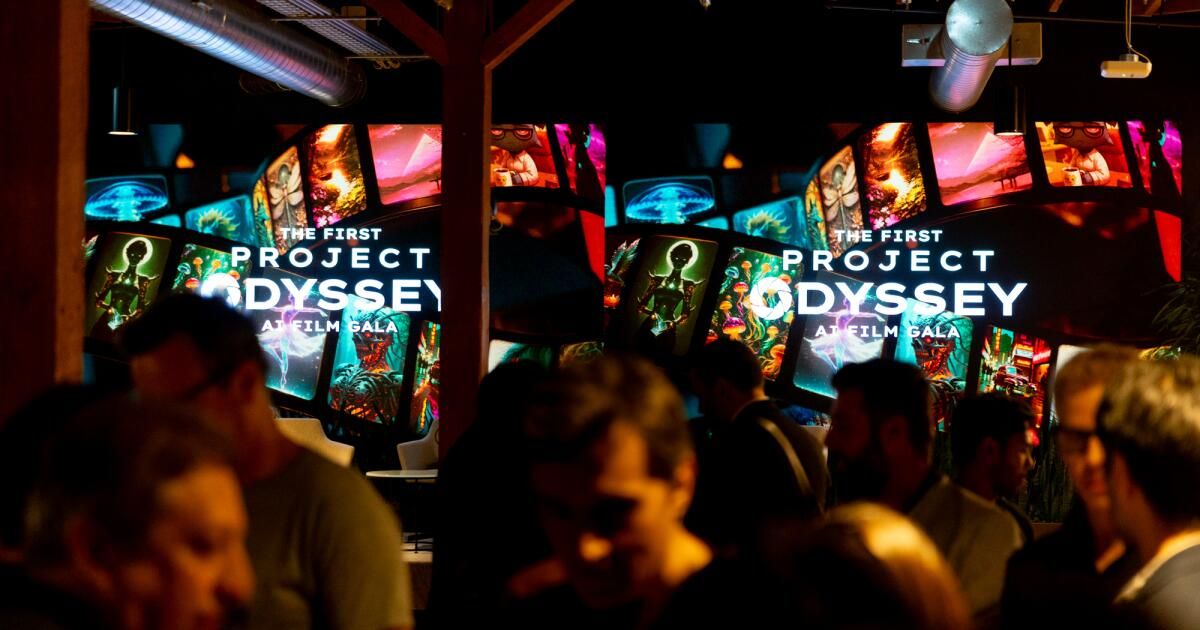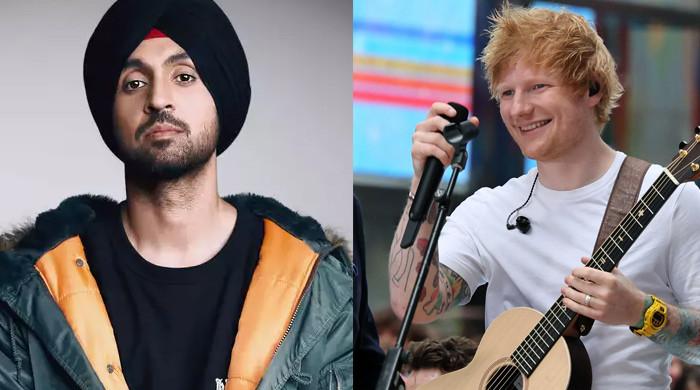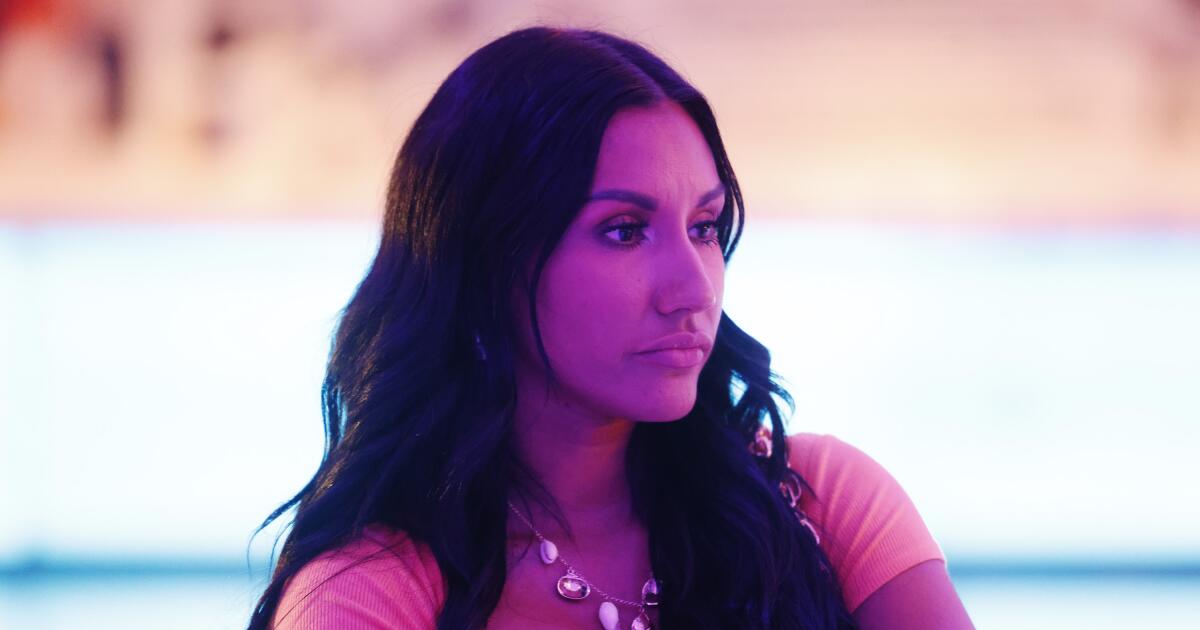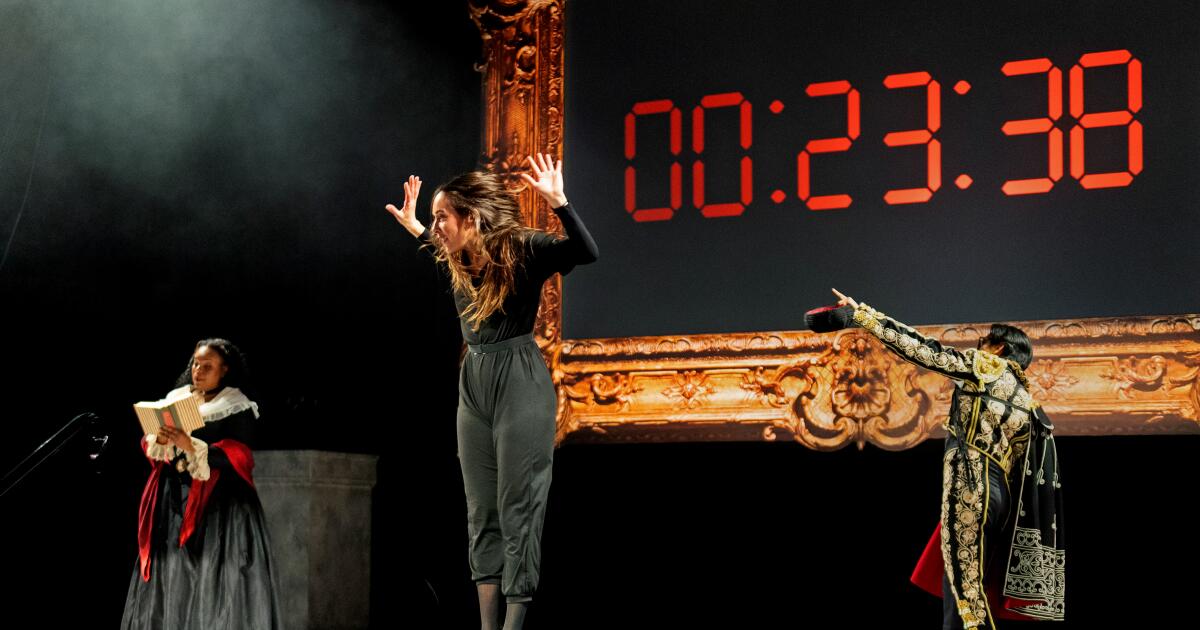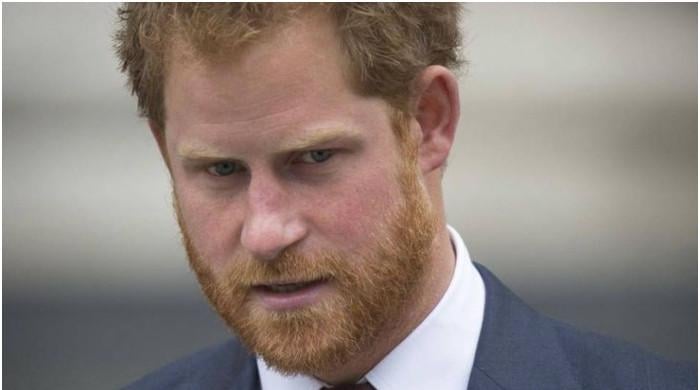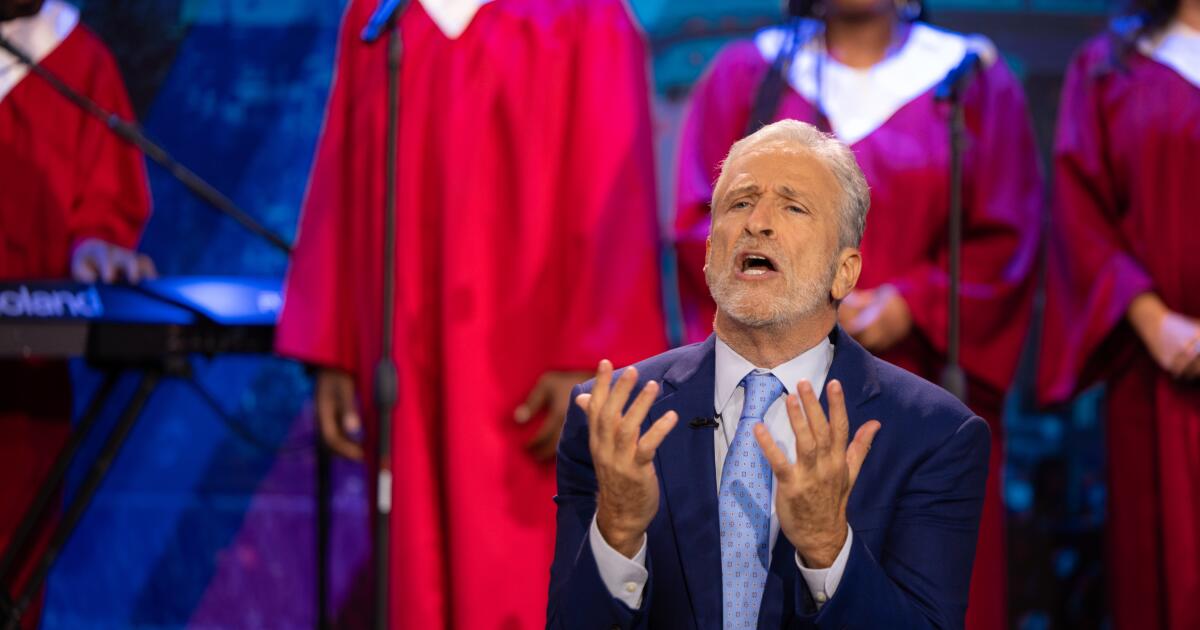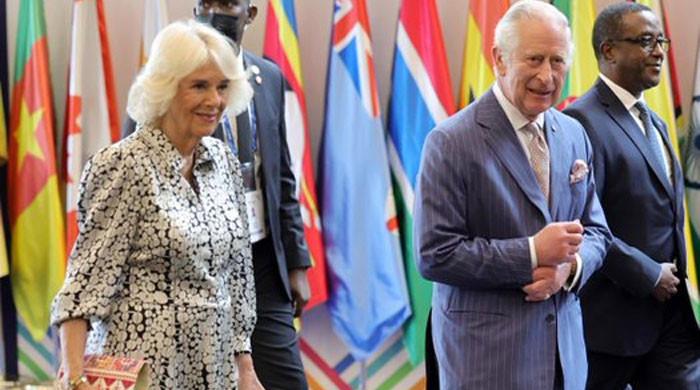San Francisco Film Commission Vice Chairman Jack Song has attended plenty of Hollywood movie premieres before, but this was a first: a gala run by technology enthusiasts that screened short films created using artificial intelligence.
Song, dressed in a black blazer and green shirt, stood in the back as he watched the audience reaction swell to applause inside the San Francisco office of Andreessen Horowitz, a major venture capital firm that has invested in startups including OpenAI, the creator of ChatGPT. In an event space used for activities like podcast recordings and networking, new films were projected on giant screens in front of a mostly seated audience of more than 100 people.
First up was an indie pop music video for a song called “Get to You” by artist Caleb Hurst. Directed by filmmaker Dylan Varella, the video featured Hurst running down a residential street as he and his surroundings cycled through a variety of colorful AI-generated worlds. At the end, Hurst said goodbye to an animated version of himself, who flew away and transformed into a cartoon sun.
The audience applauded.
“There was still a human component to the story, but they leveraged all the AI tools out there to help enhance that viewing experience,” Song, a startup marketing executive turned film producer, said in a phone interview after the event. “That’s what filmmaking and storytelling is all about. It’s about giving the audience an experience … and provoking even more thought.”
“Get to You” was one of a handful of AI-generated films screened this month at an event called the Project Odyssey AI Film Gala, a roughly four-hour gathering (part movie premiere, part tech startup conference) intended to showcase innovations in filmmaking using AI models.
In some ways, the event had the trappings of a normal short film festival. There were awards and honors, as well as snacks, Pokeboxes and wine. But in other telling ways, it was a clear product of Silicon Valley’s foray into Hollywood territory, having been organized by Civitai, a company that offers a platform for people to discover and share AI-generated art and tools.
There were no publicists watching over the A-list actors and no red carpet. The dress code was originally announced as semi-formal, but, in line with the casual attire of startups, it was later amended to “business casual, but feel free to dress up!”
In Hollywood, some creatives have called AI a villain, a technology that will eliminate jobs and dramatically threaten their livelihoods. Those concerns came to a head last year with the dual Hollywood strikes led by screenwriters and actors. But in San Francisco, home to a number of AI companies that have raised billions of dollars, there is more enthusiasm, though technology enthusiasts did not sugarcoat its effects.
Coco Nitta, CEO of AI-powered film studio iKHOR Labs, one of the event's sponsors, began his keynote address with the rhetorical question that's on the minds of many entertainment industry workers: “Will AI take my job?”
Film enthusiasts have also questioned the artistic value of AI-generated films. Oscar-winning director Guillermo del Toro recently joked that the technology has only proven it can create “semi-convincing screensavers.”
Matty Shimura, Civitai’s vice president of partnerships who leads AI initiatives in film and television, appeared to address that culture clash in his opening remarks to attendees at the Sept. 13 gala.
“This started as a dream eight months ago, when I came to Civitai and… we set out on this journey to see how we can legitimize film production with artificial intelligence,” Shimura said.
For the Project Odyssey film competition, creators from around the world created AI-powered films that were four minutes or less in length. Winners could win cash as well as credits or subscriptions to AI tools.
The goal was to encourage creators to try out AI and see how far their imagination could take them. Enthusiasm was high, with over 1,300 participants.
“There are stigmas associated with using AI tools for film production, especially in traditional creative communities, but we are trying to be transparent about how the tools are being used,” Shimura said in an interview. “The people who are most resistant to the technology right now are also the ones who are going to use it best.”
The short films showed how AI could be used in different genres, including westerns and narrative dramas.
Nitta said AI tools like the ones his company is developing could streamline animation processes, potentially preventing worker burnout. For example, his company worked with the music group ROHKI to create a roughly 12-minute video that was shown at the gala.
The filmmakers used AI tools from iKHOR Labs to transform the live performances into stylized animated versions of the ROHKI characters, Nitta said. The project was completed by six people in about a month and a half. Without the technology, Nitta said, it could have taken six months to a year.
Tech executives cite these creations as evidence of how AI could empower artists to dream boldly and share new stories in unique ways.
“This technology is going to democratize things in some ways,” Nitta said. “Independent filmmakers who have brilliant ideas in their heads will have the opportunity to get their stories out into the world.”
Varella, the 30-year-old Austin director behind the “Get to You” video, said he was skeptical at first, worried that AI tools could “cheapen” art and could be seen as a way to take time away from visual effects artists.
But Varella was also curious, so she entered the contest. The process was more complicated, technically challenging and creative than Varella initially expected, she said.
“By the end, I felt like I had learned a whole new role,” Varella told The Times. “It required making creative choices all the time, in a way I didn’t expect. It felt like a new art form.”
Still, Varella said he worries that in the future, as AI advances rapidly, someone could do in a day what took him about 300 hours.
“I'm a little scared of where this is going and I'm not thrilled that it's going to get easier,” Varella said.
More AI film competitions are on the way. A second Project Odyssey competition is planned for later this year. In October, Amazon’s AWS Startups and Los Angeles-based FBRC.ai will host a film competition called the Culver Cup.
Several panelists at the Odyssey Project event acknowledged that the technology still has some shortcomings, but its capabilities are improving.
“I like to take the bull theory of glassmaking, which is that the tools you have at your disposal allow you to manipulate them as you wish,” said Katya Alexander, president of Pillars Studio, on one of the panels. “They don’t work exactly the way you would like them to yet.”
But Jason Zada, founder of AI studio Secret Level, hopes that one day people will talk less about the AI tools involved in making movies and more about the movies themselves.
“Hate [it when] “The question I get asked right after I show something is, ‘What tools did you use?’” Zada said on a panel. “Who cares? You know, did you like it? Was it good?”

